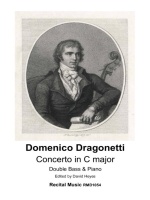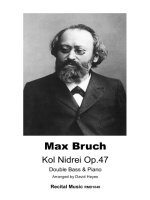Your basket is currently empty!
The Can-Can

Description
Not one for the purists! The Can-Can transcribes well for the intermediate Double Bass, Quartet and is a lively and upbeat addition to the transcription, …Repertoire. It evokes the gaiety and joie de vivre of 19th-century Parisian life and is always popular with audiences. The melodic interest is shared between the players and there is great scope for fun and enjoyment. Ideal as an encore or the final piece in a concert, this has been a constant best-seller since publication and is now available as a pdf download. Although arranged for quartet, it has also been successfully performed with larger forces. Jacques Offenbach (1819-1880) was a German-born French composer and cellist and composed almost 100 operettas. He was significant on later operetta composers, such as Johann Strauss II and Arthur Sullivan, and many of his stage works are still in the repertory into the 21st-century. The Galop Infernal is from Orpheus in the Underworld, composed in 1858 and revised in 1874, and was Offenbach’s first full opera. At the end of the 19th-century it became one of the world’s most famous pieces of music when the Moulin Rouge and the Folies Bergère adopted it as the regular music for their can-can. The Galop is now better known as The Can-Can.
R.R.P £7
Our Price £5.95




